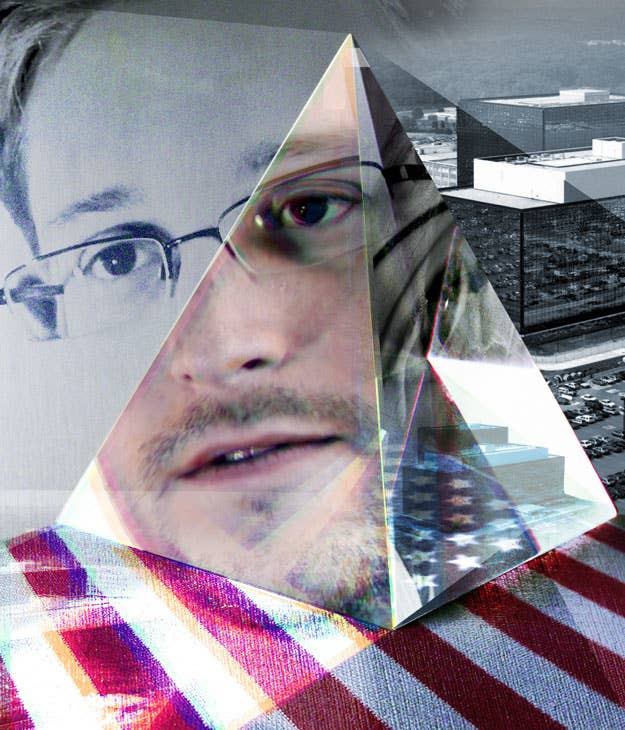
Monday brought an online confrontation between Jeffrey Toobin and ... Jeffrey Toobin, in the same article about The Guardian's NSA source, Edward Snowden.
First, he wrote in The New Yorker:
What makes leak cases difficult is that some leaking—some interaction between reporters and sources who have access to classified information—is normal, even indispensable, in a society with a free press.
But then, he also wrote:
[O]ur system offers legal options to disgruntled government employees and contractors. They can take advantage of federal whistle-blower laws; they can bring their complaints to Congress; they can try to protest within the institutions where they work. But Snowden did none of this. Instead, in an act that speaks more to his ego than his conscience, he threw the secrets he knew up in the air—and trusted, somehow, that good would come of it.
Although Toobin dismisses Snowden's decision as based on ego, Toobin sees no contradiction with the fact that he himself had concluded, earlier in the same piece, that Snowden is "a grandiose narcissist who deserves to be in prison."
Three points:
1. There are too many unknowns in this story. How is it possible for a journalist or responsible legal analyst to be so sure of himself or herself at this point in this story?
Journalism and the legal system that Toobin so reveres aim to find the truth, but Toobin has reached certainty before certainty is possible. He's not alone. Others are just as certain that Snowden should be lionized. Yet, per The Guardian's Glenn Greenwald and others, much of Snowden's leaked information is still not public.
2. Toobin disregards his own comments about the indispensable role of government leaks in a society with a free press. How can Toobin possibly know at this point in this story whether this leak was necessary?
Without any consideration of whether leaking was "indispensable" in this case, Toobin instead writes that Snowden had plenty options within government — using formal whistle-blower processes, going to Congress or lodging an internal protest. Without explaining how he reached the decision, Toobin concludes the "legal options" for "disgruntled government employees" were sufficient here.
3. Toobin, like some unquestioningly supporting Snowden's actions, oversimplifies the situation — painting a picture in black and white where there mostly right now are only grays. What he misses, or ignores, is that all of the possibilities he discusses could be true. What's more, all of those conflicting truths are essential to and the cost of a free society.
Snowden's acts could be illegal and motivated by ego at the same time that they could be indispensable and a key to citizens' understanding the workings of our democracy. Snowden may have been reckless and deserve to be put in prison, but his disclosures may also have been motivated by his conscience and move the country to think and talk about the systems put in place since 9/11 in a groundbreaking way.
Toobin, however, is unwilling to entertain these conflicting possibilities — or the fact that no one knows how or where this story will end — and, as a result, his readers lose out.
